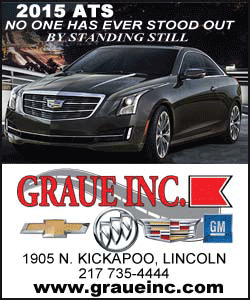|
 Two of the new injectable cholesterol treatments, called PCSK9
inhibitors, could gain U.S. approval this summer. CVS said they
could eventually be used by as many as 15 million patients at an
annual cost of up to $150 billion a year if priced at $7,000 to
$12,000 a year, making it the highest-selling class of drugs in
history. Two of the new injectable cholesterol treatments, called PCSK9
inhibitors, could gain U.S. approval this summer. CVS said they
could eventually be used by as many as 15 million patients at an
annual cost of up to $150 billion a year if priced at $7,000 to
$12,000 a year, making it the highest-selling class of drugs in
history.
"The resilience and ability of our health care system to absorb such
high costs will be tested if rigid cost control mechanisms are not
put in place," William Shrank, chief scientific officer for CVS,
said in a statement.
CVS, the second-largest U.S. pharmacy benefit manager (PBM),
negotiates drug prices for 65 million people through contracts with
employers and health plans.
The CVS call for cost controls follows sharp criticism from
insurers, other payers and politicians over the high cost of new,
highly effective treatments for hepatitis C, especially two
medicines from Gilead Science Inc that have retail prices of up to
$94,500 per patient for a course of treatment.

Unlike those drugs, which are typically taken for about 12 weeks,
the PCSK9s would be used for a lifetime.
Express Scripts, the largest U.S. PBM, which has waged a campaign
against Gilead's hepatitis C drugs and is now scrutinizing costly
cancer medications, provided a slightly different view of the new
cholesterol drug market.
Express Scripts also expects annual costs of around $10,000 per year
per patient. But it sees a patient population that will start small
before it ever reaches a possible high of 10 million people and a
potential annual cost of $100 billion.
Express Scripts Chief Medical Officer Steve Miller said in an
interview that limits set by regulators and the fact that the first
wave of drugs are injections may slow their uptake.
[to top of second column] |

"We are going to work to get these products at the best price
possible, but they also deserve to get value in the marketplace,"
Miller said.
Amgen Inc and a partnership of Sanofi and Regeneron Pharmaceuticals
Inc are awaiting approval of rival PCSK9 inhibitors.
They are expected to be used first by patients who are genetically
prone to extreme high cholesterol - a population that CVS and
Express peg at 620,000 Americans. They also are likely to be used by
those who cannot tolerate standard statin treatments, like Pfizer
Inc's Lipitor.
Amgen declined to comment on the pricing issue and Regeneron did not
respond to a request for comment.
Shares of Amgen closed up 0.5 percent at $154.24, while Regeneron's
stock gained 0.4 percent to $404.18. Sanofi's shares slipped 0.2
percent to 85.53 euros in trading in Paris.
(Additional reporing by Bill Berkrot and Caroline Humer in New York
and Vidya L Nathan in Bengaluru; Editing by Simon Jennings, Paul
Simao and Matthew Lewis)
[© 2015 Thomson Reuters. All rights
reserved.] Copyright 2015 Reuters. All rights reserved. This material may not be published,
broadcast, rewritten or redistributed.
 |